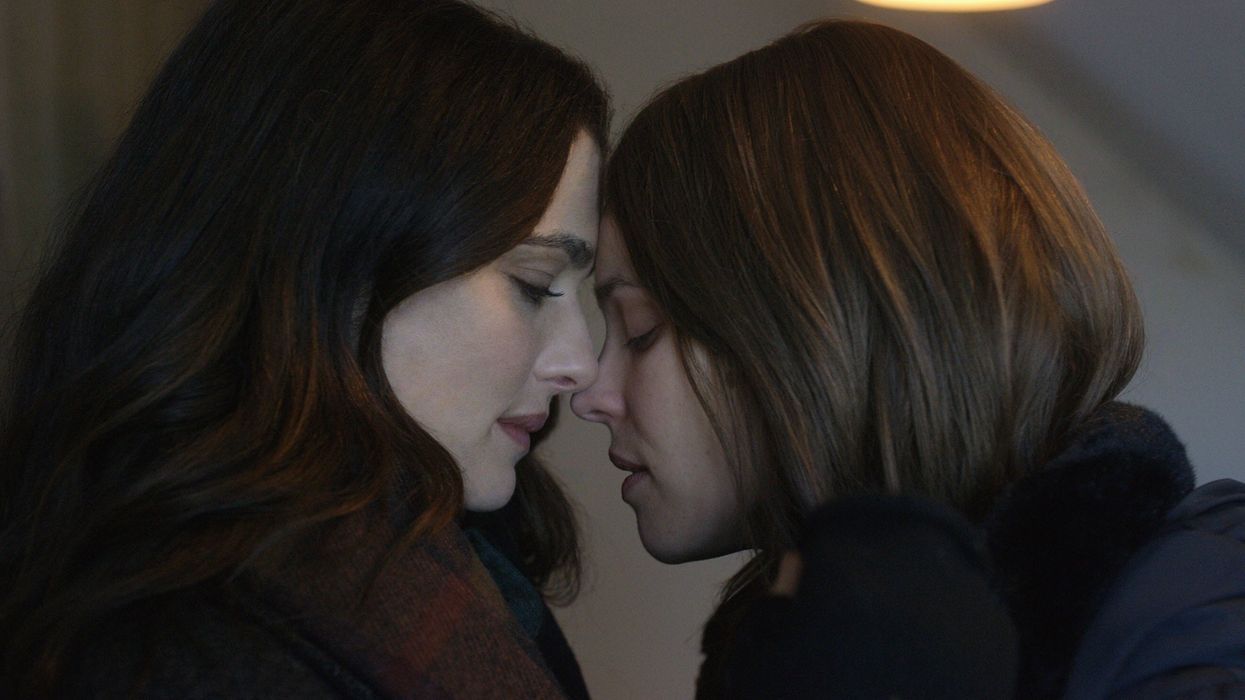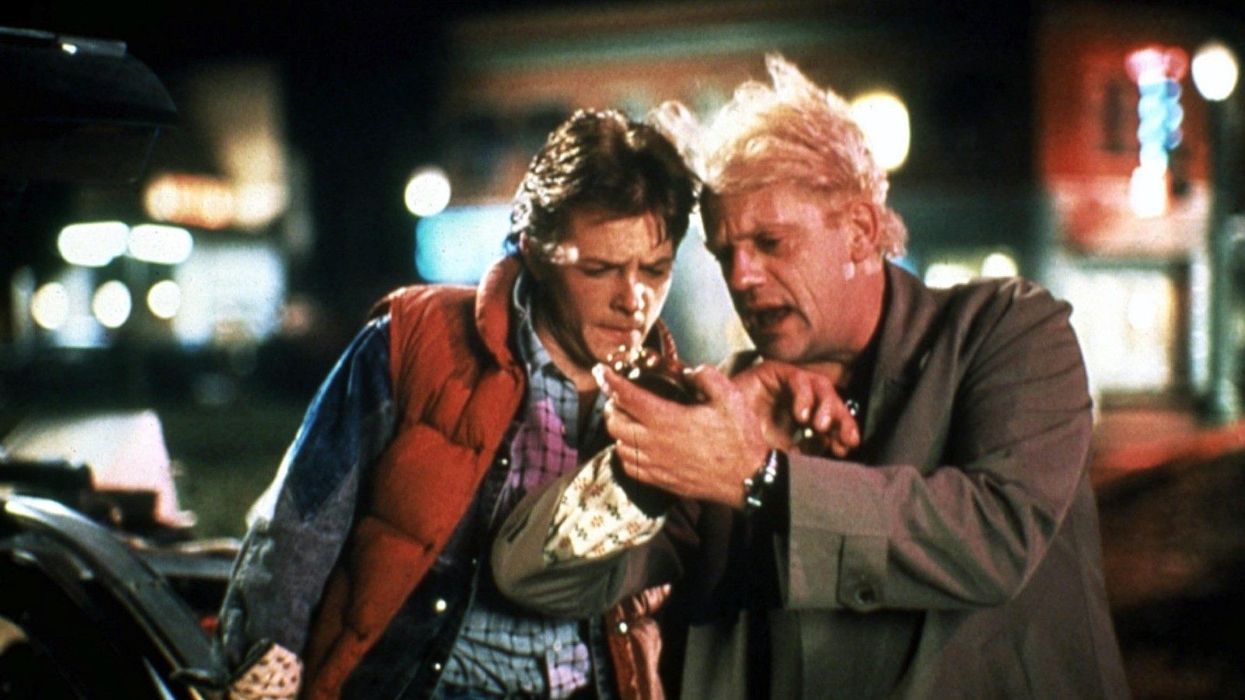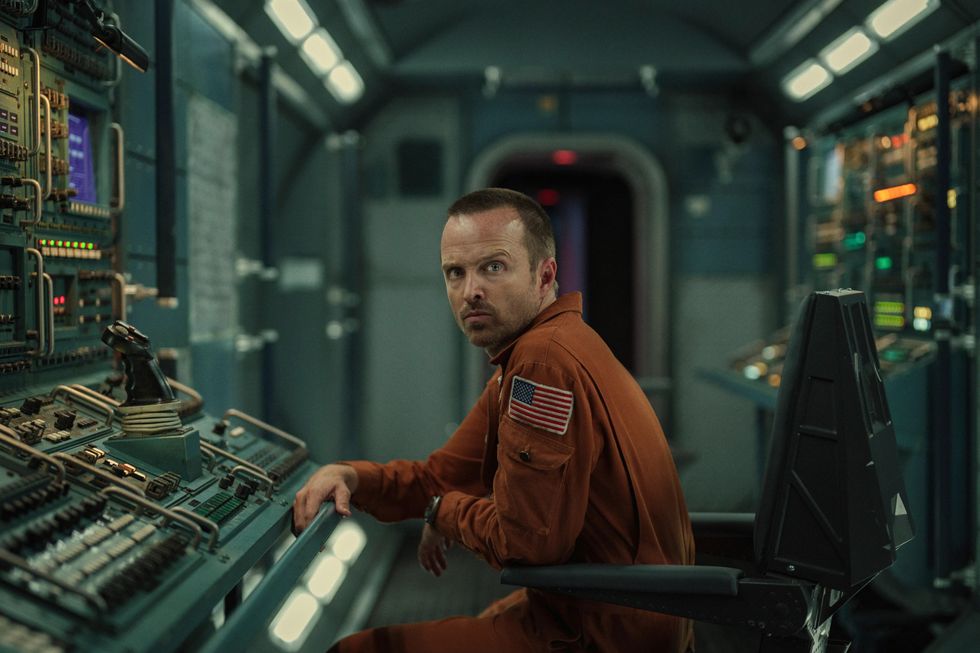Our Most Anticipated Films of Tribeca 2018
The Robert De Niro and Jane Rosenthal-founded New York festival arrives in style.

If it's springtime in New York City, it can only mean one thing: allergy season! But if it means two things, then we're pretty sure it's the Tribeca Film Festival. Now in its 17th year, the downtown-based festival has only grown in scope, incorporating film, television, VR, AR, free film-and-techmaker talks, and a whole lot more.
Running April 18th thru April 29th, the festival is a fully immersive experience, and the No Film School team is excited to cover it! We'll have ongoing coverage over the next two weeks, but to get things started, check out our most anticipated films and events for this year's fest.
The Bleeding Edge

Section: Spotlight Documentary
Academy Award-nominated filmmakers Kirby Dick and Amy Ziering's Tribeca premiere follows the personal stories of patients affected by high-tech medical devices gone wrong. On the surface, The Bleeding Edge may appear to tackle a less contentious topic than the co-directors' previous work—The Hunting Ground and The Invisible War investigated sexual assault on college campuses and in the American military, respectively—but don't let the film's seemingly arcane subject matter fool you. Tribeca bills this searing exposé of the medical device industry as "the stuff of dystopian nightmares.” —Emily Buder
Charm City

Director: Marilyn Ness
Section: Viewpoints
While there have been several documentaries about Baltimore, Maryland's political unrest and impassioned protests, Charm City is the first, to my knowledge, to encapsulate the wide spectrum of events that have transpired over the past three years. Both timely and distant, the film contemplates the city's future while addressing its recent past. Directed by documentary powerhouse Marilyn Ness—she recently produced Kirsten Johnson's Cameraperson—the film feels like an excellent addition to a recent string of strong political docs. —Erik Luers
Diane

Director: Kent Jones
Section: US Narrative Competition
Kent Jones knows a thing or two about independent film. As the Director of the New York Film Festival since 2013, Jones has brought the highest-quality gems from the festival circuit to screen in front of the world's second-toughest crowd (after Cannes, of course). In 2015, Jones proved his impeccable taste extended beyond programming when he directed his first documentary, Hitchcock/Truffaut, an artful and auteur-studded tribute to two cinematic greats. Now, Jones tries his hand at narrative with Tribeca premiere Diane, the story of a widowed septuagenarian who is left with nothing after a life spent in the service of others. In the hands of Jones, who has spent his life in the service of characters, Diane promises to be a complex character study. Did I mention that the film is executive produced by Martin Scorsese? —Emily Buder
Disobedience

Director: Sebastián Lelio
Section: Spotlight Narrative
This is one of those films that excite me not only because of the subject matter—a clash between tradition and modernity that plays out through a secret lesbian love affair between two Orthodox Jewish women—but also because of its stellar team. Disobedience is the English-language debut for Chilean director Sebastián Lelio, who won the Foreign Language Oscar last month for A Fantastic Woman. His screenwriting partner, Rebecca Lenkiewicz, co-wrote the screenplay for Ida, which won the same prize in 2015. The film is shot by Danny Cohen B.S.C, who has beautifully handled similarly intimate dramas in the past, including The Danish Girl and A24’s Room. Put this group together with celebrated leads Rachel Weisz (also a producer on the film) and Rachel McAdams, and you have a very compelling reason to get to the theater. —Liz Nord
The Fourth Estate

Section: Gala
Documentaries that focus on the inside nuts-and-bolts of rigorous journalism are like catnip for me, and one with unprecedented access only sweetens the deal. Two-time Academy Award nominee Liz Garbus returns with her latest nonfiction feature and it couldn't be more timely, going behind the scenes of The New York Times' coverage of Donald Trump's first year as President of the United States.
Perhaps you've heard that Trump isn't too big a fan of The Gray Lady, and impartially covering someone who daily berates your employer on Twitter probably isn't the easiest job for reporters to carry out. How did the media respond when attacked? And what did they really feel behind closed doors? Hopefully, this doc will make headlines. —Erik Luers
Maine

Section: US Narrative Competition
Writer-director Matthew Brown premiered his debut feature, In the Treetops, at the LA Film Festival in 2015, where it garnered praise for its "offhand intensity," "off-the-cuff vitality," and an "engagingly low-key" feel. For his sophomore feature, Brown has another decidedly low-key premise in Tribeca premiere Maine, the story of two solo hikers whose chance encounter on the Appalachian Trail leads to an illicit romance. Given that the film takes place entirely between two characters in nature, its success will be contingent upon strong writing, performances, and direction. But with Brown's track record for bringing quietly assured stories to life, Maine does not look to disappoint. —Emily Buder
Mapplethorpe

Section: US Narrative Competition
In a moment when docu-fiction hybrids are on the rise, I’m particularly excited to see how accomplished documentarian Ondi Timoner handles a true story told via a fictional narrative film. This biopic of provocative photographer Robert Mapplethorpe promises to be both an interesting time capsule of the intersection of art and politics during the AIDS crisis, and a love letter to the raw ‘80s New York counterculture scene. Timoner’s Grand Jury Prize-winning doc DIG! (2004) about the 90's indie bands The Dandy Warhols and The Brian Jonestown Massacre proves that she can tell the stories of other artists effectively, and we can expect the same to hold true for Mapplethorpe —Liz Nord
objects in mirror AR closer than they appear
Section: Storyscapes
I’ve been on the interactive storytelling beat since long before I came to NFS, and Tribeca’s immersive programming remains among the most thoughtful and interesting. This is especially true of the Storyscapes section, which contains the handful of curated projects in competition. These generally aren’t just VR films, but rather full-scale interactive installations built out specifically for the festival. They tend to work best when combining multiple media and sensory experiences, as is the case with objects in mirror AR closer than they appear. Cheesy title aside (“AR” stands for “augmented reality”, a primary tech used in the piece), its premise is intriguing: “an immersive theater installation, inviting audiences to reflect on the relationship between new media and archaic objects…and memory and optical illusion.” —Liz Nord
Unbanned: The Legend of AJ1

Section: Special Screenings
To say I enjoy watching the game of basketball would be an understatement. To say that there's as much to learn about the history and politics of the game as there is the traditional Xs and Os would be one too. African-American athletes weren't typically chosen as the face of multimillion-dollar brands in the 1980s, and, with the debut and subsequent NBA ban of Michael Jordan's debut sneaker, the Nike Air Jordan (AJ), the famous Chicago Bulls star would indirectly change sneaker and basketball culture forever.
The AJ1's debut prompted a national debate as to who gets to become the face of a brand and Unbanned: The Legend of AJ1 appears to touch on the very prevalent issues of race, censorship, greed, and conformity. Premiering as a Special Screening at the legendary Beacon Theater (complete with a live musical performance), the doc includes interviews with Michael Jordan, actor Michael B. Jordan, Spike Lee, and Anthony Anderson. —Erik Luers
For more information about this year's Tribeca Film Festival lineup, click here.













